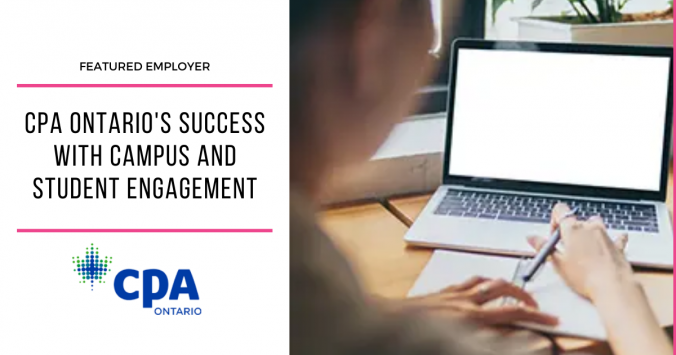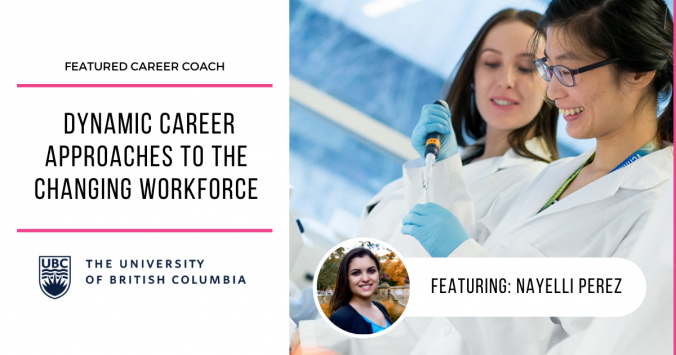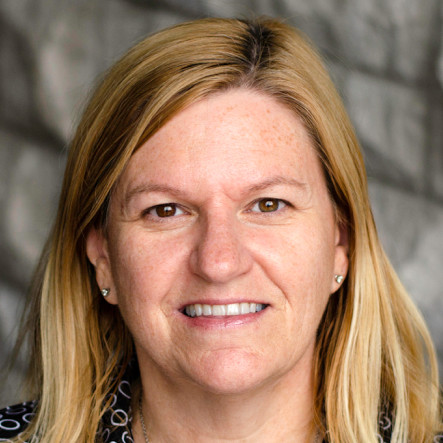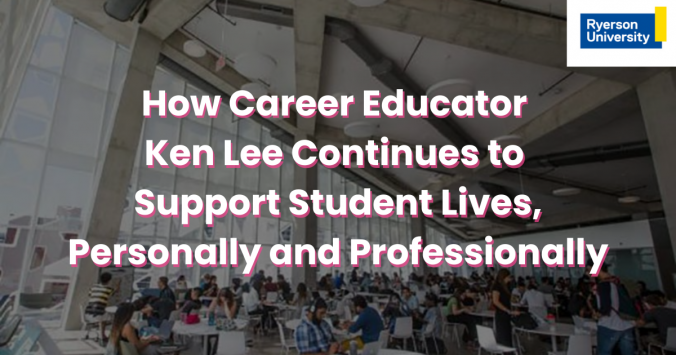The team at CPA Ontario are made up of the brightest educators, thought leaders, regulators, advocates and providers. They go the extra mile and often take measures to protect the public interest by ensuring their CPA members meet the highest standards of integrity and expertise. Additionally, CPA Ontario provides pathways to the profession for aspiring accountants from around the world, and engage in their community as responsible corporate citizens.
However, when it comes to the accounting profession and specifically the CPA designation with regards to the kinds of careers it can lead to, there are still many misconceptions regarding the industry. CPA Ontario has many resources that dispel these myths about CPAs working with excel all day or being stuck in a cubicle, and host their biweekly information sessions where students can learn more about how the CPA can lead to a successful career in business.
Anyone can register here: https://www.cpaontario.ca/become-a-cpa/post-secondary-student/events to attend an information session and learn more about the future of accounting, finance, general business, and how the CPA can help anyone reach for their dreams.
Keep reading to learn more about how CPA Ontario solidifies their initiatives in campus engagement, diversity, equity and inclusivity, and how they successfully navigate connecting with students during the COVID-19 pandemic.
CPA Ontario’s Support for Student Community Engagement
At CPA Ontario, they hold a lot of pride in their Post-Secondary Ambassador Program (PSAP) and Board of Ambassadors Program, especially regarding the strong community of students they have fostered. The CPA Ontario community has explored careers in business, built relevant skills that employers are looking for in successful candidates, and have connected with key employer stakeholders.
Their Post-Secondary Ambassador Program and Board of Ambassador Program have been successful ways for us to engage student voices in their space. Additionally, their Board of Ambassador representatives act as an advocacy and advisory group for their recruitment team, which ensures they keep their pulse on student needs. In terms of creative ways to get CPA Ontario’s message out, they try to meet students where they are at; whether it’s through a new series of Instagram lives and takeovers, or by hosting their Live @ the Drive-In movie night (with lots of popcorn of course). As CPA Ontario moves towards a hybrid of in-person and virtual, some of these tactics may change, and so now CPA Ontario is asking themselves new sets of questions on how to continue to support student career paths.
Diversity, Equity, and Inclusion Initiatives in the Accounting Industry
At any organization, DEI and related initiatives should mean that all people should have a seat at a table, and that their voices are heard. It was important to the CPA Ontario team last year that their online programming continued to drive inclusivity, making their events accessible to wider audiences geographically and representationally.
At CPA Ontario, events are frequently hosted throughout the year. To name a few initiatives, they partner with agencies to reach new audiences, hold events specific to niche groups, and ensure all their participants are made aware that accommodations will be supported.
3 Key Insights Into Campus Recruitment and Student Engagement with CPA Ontario
Trend 1: Students have no shortage of aspiration, for themselves or for the world. Yet, they are easily discouraged by the realities and threats of post-academic life.
So, they ensure that they don’t ever shy away from the tough conversations whether it be in a recruiter’s presentation or panel discussion with CPAs. The CPA Ontario team addresses the fears students’ have about the future of AI, work-life balance, and others in open discussions, so students feel equipped when they begin their careers.
Trend 2: The next generation of students will be going to be looking for more flexibility and the ability to have influence/make an impact in their future careers.
So, they highlight the many diverse career paths that their current CPAs are in so students can envision themselves in similar paths. Through their programming, they also share how CPAs reimagined their careers to create their own unique paths, to inspire students who aspire to do the same. They also provide forums of discussions and facilitate opportunities for students to connect with these professionals to form their own relationships.
Trend 3: Employers are finding there are human skills gaps when hiring new grads.
So, they provide training in important human skills like leadership, responsibility, personal management, and emotional intelligence to name a few. As CPA Ontario is also a regulator, it is important to the recruitment team that they are equipping future CPAs to be valuable leaders, employees, and entrepreneurs.
The COVID-19 Pandemic’s Effect on Campus Engagement
The pandemic resulted in the CPA Ontario team doing things differently. They had to reimagine their offerings to provide enhanced online experiences. For example, their Employment Connections Career Fair which was once limited because it was held in Toronto and in-person, can now have any number of students across Ontario attend.
The most rewarding aspect has been the feedback from their post-secondary students who have thanked us for the online community of students they built, during a time that many of them felt very isolated at home. The CPA Ontario team gave students a space to connect with each other, gain new skills, and meet CPAs, all while having fun!
The most challenging aspect was probably at the beginning of the pandemic when the team would ask each other how they would do all that:
- What platforms would they use?
- What would the tone and cadence of their virtual spaces look like?
They had a lot more questions than they did answers, but they were quick to not get stuck in their questions and begin making moves. It was trial by fire, but the CPA Ontario team strongly believes they have come out victorious on the other side!






